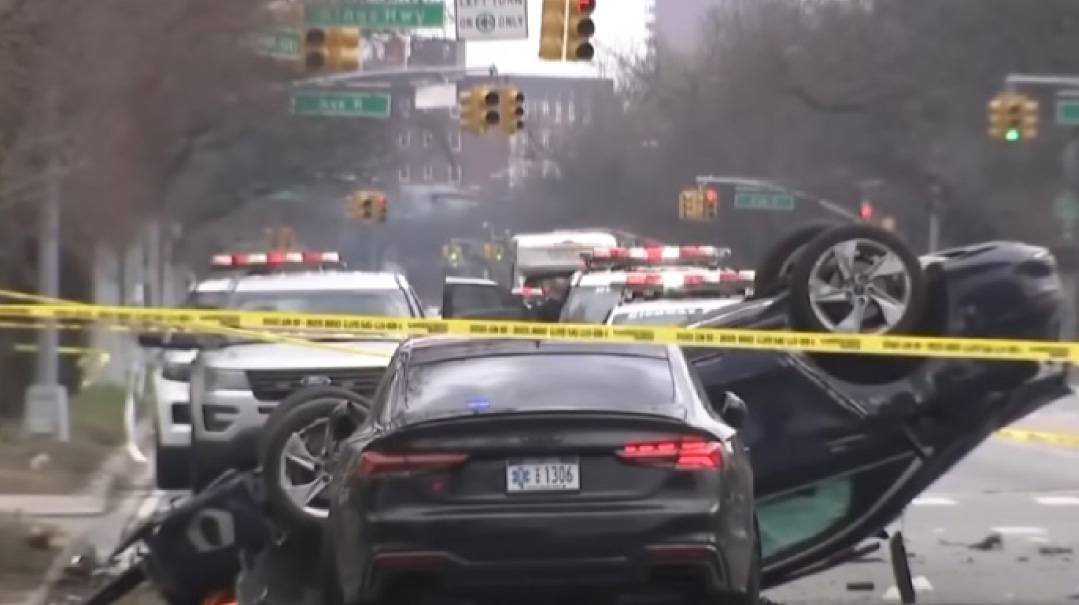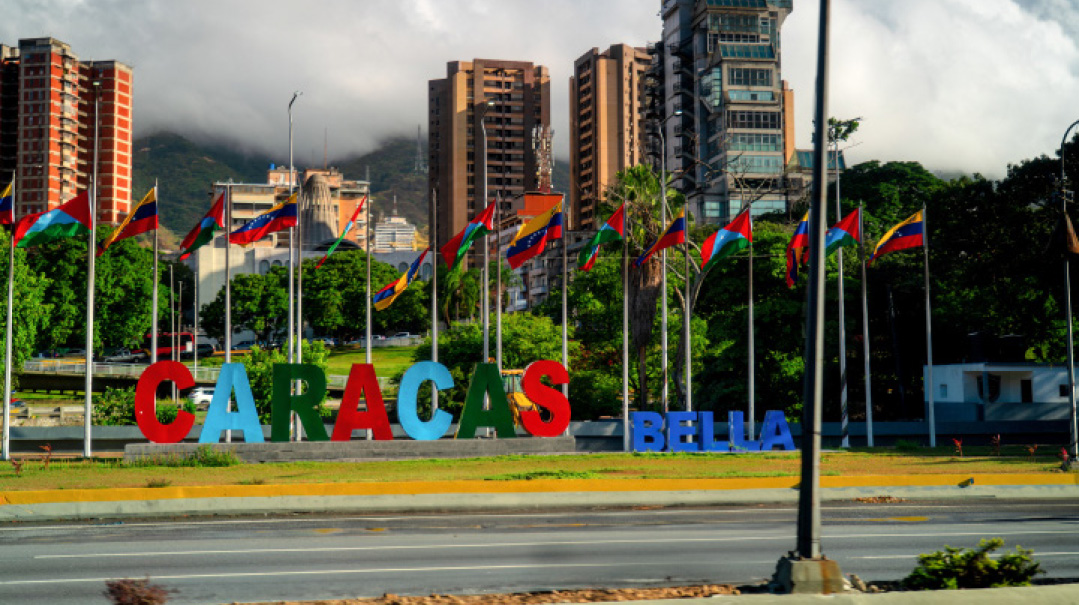A Devastating Loss
| April 1, 2025How can a community recover from such a devastating tragedy? How does one keep going?

It’s every father’s worst nightmare — a wave goodbye no one could have known would be the last.
On Shabbos afternoon, Sarah (Natasha) Saada, 35, and her two daughters, Dinah Brachah (Diana) and Devorah Mazal (Debra), ages seven and five, were walking on Ocean Parkway, on their way to visit a cousin. Pinchas Refoel (Phillip), aged four, was with them as well.
“She raised her children with chochmah to be mekadesh Sheim Shamayim,” said Rabbi Yosef Ozeri, rav of the family’s shul, at the levayah. “She was mekadesh Sheim Shamayim with her death.”
Without warning, a vehicle driven by a 32-year-old woman at high speed plowed into another, flipped in the air, and struck the group of four. Sarah and her two daughters were instantly taken to Shamayim on angels’ wings, and Pinchas Refoel was rushed to Coney Island Hospital in critical condition, where doctors quickly performed surgery to save his life.
A neighbor was forced to knock on Sidney Saada’s door to deliver the terrible news. Another had to tell parents and grandparents Jack and Shahin Assil.
A reeling community struggles to process the enormity of the tragedy. Rabbanim and community members search for the words to bring consolation, hope, chizuk, and perspective.
It is always the great ones that Hashem takes from us.
Mishpacha spoke with several rabbanim who know the family. “Natasha Saada was a tremendously strong, brave, and devoted person,” said one. “She was constantly working on herself, striving for greater connection to Hashem, to increase ever more yirat Shamayim and kedushah in her family.”
The nifteres was a kallah teacher who stayed in contact with her students. She was often consulted on matters of shalom bayis.
“I can testify personally that she helped many couples,” a rav said.
“She was intensely, single-mindedly devoted to her children,” another added. “She was offered a lucrative job, which she turned down because she felt it would cut into her time with the children and family, and nothing was more important to her. She built her family with strength, insight, and wisdom.”
Her efforts bore fruit. She and her husband were tremendous baalei chesed, helping many people both personally and financially. The home was filled with Torah, Sidney is koveia itim. The children were raised with a love of Torah and mitzvos, taught to be forever growing. When she was six, Diana told her parents, unprompted, that she intended to marry “only a rabbi.”
“Natasha called with questions in halachah often, and she was remarkably clear in what she was asking,” a rav said. “She knew the issues, had her questions clear, and always consulted with rabbanim and poskim.”
“She was a woman who did not act out of emotion,” said Rabbi Yosef Ozeri, rav of Beit Knesset Shaare Tefillah —where the family were members — in his words at the funeral. “She acted only based on what was right and wrong, based on her connection to the Borei Olam.”
Mrs. Saada was very connected to Shabbos, Rabbi Ozeri added. She adjusted her schedule to attend a weekly class on enhancing Shabbos at the rav’s yeshivah, Mekor Haim.
“She said her neshamah was thirsty for the ruchniyut,” Rabbi Ozeri explained.
Just before her final Shabbos, she told her husband that she felt the family should study hilchot Shabbat at the table. This past Friday night, she led the first —and last — such study session.
To best use the long Shabbos afternoon, she eschewed a post-seudah nap to take the children to visit family. Shamayim decided that would be her last act of kindness.
“She would not want there to be eulogizing at the funeral,” Rabbi Ozeri said, “Because it is Rosh Chodesh, and eulogies are forbidden. She would want us to follow the halachah exactly.”
“It’s no coincidence that she was taken on Shabbos, with which she was so connected,” a rav shared. “She looked forward to welcome it with such joy, baking challot with the children and making sure everyone knew the zemanim.”
The family was close to the Lelover Rebbe of Boro Park, as well as his brother, the mashpia Rav Meilech Biderman, and the Lutzker Rebbe. The Lelover Rebbe, who observes the issur melachah of Shabbos until chatzos, walked from his home in Boro Park to Flatbush to be with the bereaved father and his younger son, Jacob, on Motzaei Shabbos.
How can a community recover from such a devastating tragedy? How does one keep going?
Speaking at the levayah, Rav Hillel Haber quoted the mashgiach Rav Shlomo Wolbe: “One cannot give reasons. We cannot know the cheshbonot of Shamayim.”
Rav Shlomo Diamond, rosh kollel of the Sephardic Torah Center Kollel, expanded on this theme. He cited the Ramchal to explain that not all tragedies are caused by sin; some, especially now, at the End of Days, occur as tikkun olam, to prepare the world for its ultimate redemption. The ones chosen for these acts of Divine hashgachah are the giborim, the strong ones.
Both rabbanim stressed that the proper response is for individuals to make a cheshbon hanefesh, examine one’s deeds and look for ways to improve — which the nifteres did constantly and taught her children to do.
All included blessings for Sidney, with heartfelt conviction that Hashem Yitbarach, the only One who knows each individual’s real pain, the only true Baal Nechamot, is guiding the family and community. At print time, Phillip is reported to be in stable condition and is expected to recover. All are urged to continue to daven for Pinchas Refoel ben Sarah.
The catastrophe was felt across the city at large. The funeral was held at Shomrei Hadas Chapels in Boro Park on Sunday. The nifteros were then flown to Eretz Yisrael for burial in Har Hamenuchos. The levayah was attended by a large crowd of grieving family, rabbanim, community members, and government officials such as Mayor Eric Adams and members of his administration — including two Orthodox Jews, Chief Richie Taylor and Community Affairs Commissioner Fred Kreizman, who also visited Sidney earlier.
“I’m here as a dad, father to father,” Adams told the grieving husband and father, while offering full support from the city. “I only have one child. And I feel your pain.”
Police Commissioner Jessica Tisch, who is also Jewish, called it a “horrific tragedy… a mother and two young children killed. Another child fighting for his life. A family and a neighborhood devastated.”
“We need to keep going, keep marching on, keep strengthening our emunah,” Rabbi Yosef Ozeri stressed.
Rabbi Diamond quoted a letter Rav Chaim Kanievsky sent him after a family tragedy. “Anyone who passes away on Shabbos or in the performance of a mitzvah,” Rav Chaim promised, “is certain to be headed straight for Olam Haba, without any need for tikkunim.”
It is safe to say that Natasha, Debra, and Diana were doing both. May their pure and holy voices serve as powerful melitzei yosher for the family, community, and all of Klal Yisrael.
(Originally featured in Mishpacha, Issue 1056)
Oops! We could not locate your form.







